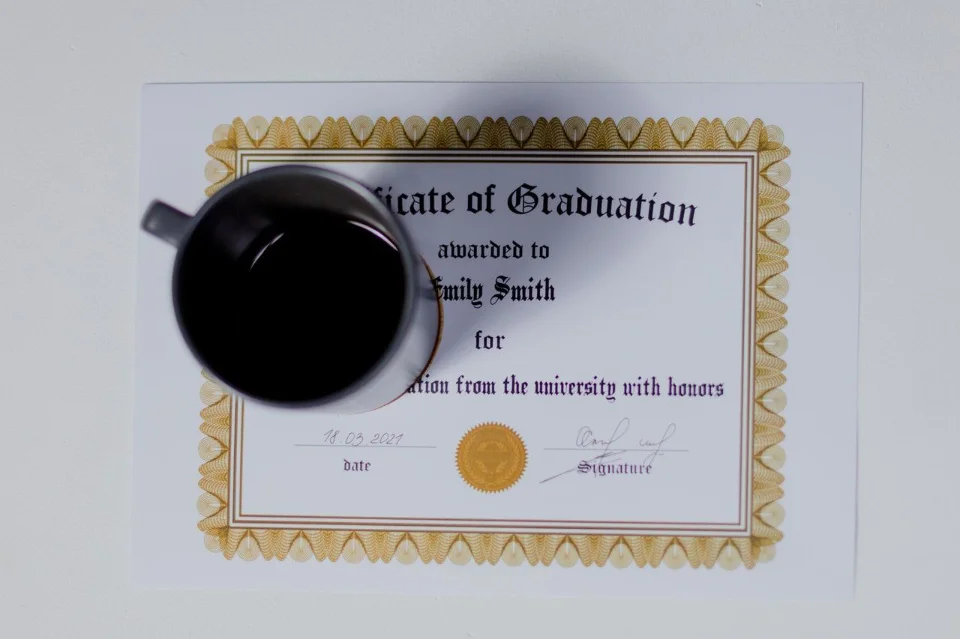Can You Get a UX Job With a UX Design Certificate?
While it's possible to get a UX job with just your UX design certificate, you'll need some experience or additional training to increase your chances. While the best jobs for someone who has completed their UX design certificate program may not involve designing products themselves, they can still help build up skills related to user experience - which will only make you better at what you do when working on future projects.
Wes Hunt

"Can you get a UX job with just a UX design certificate?" It's a question that is asked often. Some people are under the impression that they can start working in user experience with no work experience, but this couldn't be further from the truth. If you want to find success in your career as a UX designer, then it's important to have both relevant skills and experience on your resume. This blog post will answer questions about what skills are needed for UX designers, how much work experience someone should have before starting their own business, and which jobs would be best suited for someone who has completed their UX design certificate program.
UX design work requires many learned skills and practical experience. UX design is a very technical job requiring specialized knowledge involving graphic design, psychology/sociology, creative thinking, and using a variety of software. The likelihood of being hired for a UX Design position with only a UX design certificate and no experience or additional training is low, but you can improve your chances. A UX design certificate can be a great way to start or further your path towards user experience, but you need to tie any work experience, UX or otherwise, to learned UX knowledge. Because UX involves activities and skills that should be used across an organization, gaining experience can be easier than other technical careers. Customer support, customer experience, product owners, marketing, sales, product manager, and any customer-facing positions all can allow you to build skills related to UX. Where a UX certificate will speed this up is to provide the knowledge of how to re-think a customer-facing interaction in terms of improving an overall service or product.
UX designers should have the ability to think critically and creatively solve problems. They need to be able to understand customer needs and come up with creative solutions that meet those needs. To do this, they must develop strong research skills and know-how to use various design activities. They must also be able to design and prototype solutions that can be tested with users.
The best jobs for someone who has a UX design certificate would likely be roles such as interaction designer, information architect, or user researcher. The certificate should include both a general foundation along with specialty sessions in those areas. The Nielsen Norman Group provides some of the best classes and certificates covering the knowledge you need and they carry weight in the industry. However, other positions in the field are available and could be a good fit for someone with the right skillset. Product owners, front-end or UI developers, and web designers/developers all need UX-based knowledge. These positions are also good to build UX related experience to move into a UX role like UX Designer, UX Engineer, or User Researcher.
Are UX Certificates Worth Getting?
UX certificates can be valuable, but it depends on several factors. Certificates can give individuals a strong foundation in user experience and related fields. They provide an opportunity to learn about various methodologies, tools, processes, and theories. Certificates also offer the chance to network with other professionals and gain access to job postings. However, many certificates focus on general design principles instead of having a UX specialty. Graphic design is a small part of UX, but design-focused courses may be useful if you do not have a design background.
Does the program draw experienced professionals looking to supplement existing UX/product design knowledge?
A key factor for your success is how complete or advanced the certificate organization's courses are. Even if you are a raw beginner, this is very important, a good certificate organization will build a community of students. For your job prospects, it is important to network with others, especially more experienced people who may influence hiring. For example, NN/g offers UX leadership specialties and has a Slack community for current and past students. This creates an ongoing community that involves people who are building teams. Slack communities and classes can be a low-key way to meet and learn about other people. While Interaction Design Foundation is much cheaper than NN/g, it doesn't have classes for experienced UX professionals and doesn't build a long-term community. Look for programs that build a community of past students, and includes a wide variety of advanced topics to draw hiring influencers.
What is your experience, related to UX?
Do you already have an entry-level UX position or a UX related position? If you do and are a self-learner (major strength for UX), then you would be better off picking some foundational books to build your base and apply it to your work.
To get started:
- Don Norman’s The Design of Everyday Things
- Indi Young's Mental Models
- Alan Cooper’s About Face
- Steve Krug’s Don’t Make Me Think
Once you have a base of knowledge that you can apply to your work, be mindful of what you are having challenges with. These challenges should decide what courses you take in the future. Will the certificate program lets you ask direct questions to instructors who work in industry. These types of courses are more expensive but provide better long-term value.
Is the UX Certificate Recognized as Valuable in the UX Community?
Are the instructors known in the UX field? Have they written well-reviewed books or do they speak at industry events? Unfortunately, most cheaper certifications will not directly get you a job, but they may help you build a foundation of UX knowledge to "ladder-up" for the next step. We have taken Udemy, Coursera, and O'Reilly courses, as well as Interaction Design Foundation and NN/g certifications. The low-cost courses were good to pad gaps in our knowledge in specialized areas that could then be applied to active UX projects. Interaction Design Foundation was good for gaining entry-level knowledge, but we never saw any advantage for finding work. NN/g classes are more expensive, but are still cheaper than some like CareerFoundry, while being more recognized in the industry. NN/g also offers a lot of interaction with instructors, as well as networking opportunities with seasoned professionals. I took NN/g classes after having about 20 years of varied HCI and user research experience and still found the experience valuable.
Do some "desk research" on LinkedIn and look at UX professionals' bios. What certifications are they proud of and list, which ones do they announce in their feed when they get them? If you are interested in a specific company, look at their UX employees and see what backgrounds they have.
Summary
While it's possible to get a UX job with just your UX design certificate, you'll need some experience or additional training to increase your chances. While the best jobs for someone who has completed their UX design certificate program may not involve designing products themselves, they can still help build up skills related to user experience - which will only make you better at what you do when working on future projects.
Taxonomy:
career
